assessing the case for childhood vaccines
truth is often more complex than people realize and looks different from different angles
all medicine everywhere and always is a cost/benefit calculation.
the covid vaccines appear to be terrible risk reward.
the flu vaccine looks basically worthless despite being low risk and is almost certainly a net negative.
i would certainly not want to defend gardasil.
but some vaccines are excellent, pose very low risk, and generate real, well established clinical benefit that saves and improves lives.
i know some of you dispute this, but maybe you should hear the other side of the cases you’re calling “blue pills.” i suspect many of you have not.
ask yourself honestly:
did i ever really read and assess the other side or did i allow someone to frame and strawman it for me instead of engaging with the research from those who produced it or the raw data?
because that’s a great way to get a partial and/or distorted story.
i’m going to pick MMR as a case study because it’s well researched and among the more controversial based on some claims made by wakefield etc. and echoed through the decades.
a word of encouragement/caution first:
as the comments section on the last piece on the sources of rising vaccine hesitancy seems to show, nothing brings the bats down from the rafters like saying “many vaccines are good risk reward.” i know some folks have strong views here but if i have to hear one more “you need to get woken up here read this 900 page bad associative claims collage on autism i linked to!” (or the humphries book) well, i just don’t even know.
and so, in the interest of following truth and data (and because many are asking and i’m getting tired trying to make a case in comments that lack graphical ability and thread poorly) i’m going to actually step in and blow up a number of these “there are no good vaccines” claims.
please remember: it’s not personal, it’s science.
i hope we can still be friends.
(and if not, you may want to ask yourself some hard questions about what sort of people cannot sustain discussion and goodwill despite disagreement and whether you want to be one of them. i’m hoping BC readers are made of better stuff than that.)
let’s start with a simple concept: truth is not as simple as it sounds.
the same truth can look very different from different angles.
let’s take this famous chart from parks so often used to claim that the measles vaccine was not responsible for the eradication of measles and that it was already happening anyway due to sanitation, hygiene, improved health, medicines (especially antibiotics) and whatever else.
it’s a compelling graphic. it sure looks like vaccines stepped in and took the credit for a problem already solved.
but this is not the whole truth. this drop in deaths is “a” truth to be sure, but it’s a selective truth, a truth from one narrow angle.
let’s turn the shape and look at it from another direction:
sanitation and health advances did not make measles less prevalent, they just made it more survivable.
nearly every disease was less likely to kill you in 1960 than 1900.
deaths dropped by maybe 90% from 1930-60. reported cases were pretty close to the same at the end of that period as the beginning.
then in 1963, the measles vaccine was created (though the modern version was not until 1968).
our base prior would be that if vaccines stopped measles spread that we would see a sharp, step function drop right after they were adopted.
and that is exactly what we see.
this is the truth from another angle.
here are reported cases of measles in the US. immediately prior to 1963. they were hovering around 450,000 cases per year, about 0.25% of population, but this was highly focused on kids. most people had already had it.
(note that the more effective modern vaccine was not released until 1968 and the modern 2 dose course not normalized until 1988)
then from 1964 to 1970, cases, which had been consistent for a generations dropped 90%. then they dropped 90% again by ~1980. by the mid 2000’s, there were usually less than 100 a year.
mumps and rubella are similar since the shot became unified and are basically eradicated in america.
and yes, this is backed by sound randomized controlled trial data.
a wide survey including many RCT’s is available HERE.
the vaccines worked. the clinical evidence was borne out in the societal.
pre-vaccine, it was normal to get measles as a kid. back in the 40’s and 50’s, nearly all people got it at some point because measles is crazily contagious. R0 is estimated to be about 18. it’s 5-6X more contagious than covid. but you only get it once.
and measles is no joke. yes, survival rates were WAY up pre vaxx, but infection rates were still high and living through it does not make it pleasant or benign.
it’s a rotten disease that can drive seizures, encephalitis (brain swelling), blindness, hearing loss, and other forms of brain injury/damage like dawson’s disease.
the rash is awful, the fever high, and the cough nasty.
you do not want measles.
and while deaths were greatly reduced in the US even pre-vaccine and cases dropped to basically 0 by 2000, it’s still a meaningful killer in the poor world. ~140,000 died from it in 2018.
vaccines eradicated this in the US.
the CDC estimates:
In the decade before 1963 when a vaccine became available, nearly all children got measles by the time they were 15 years of age…
U.S. Measles Burden: Before 1963 Vaccine Development.*
Each year, measles caused an estimated 3 to 4 million cases
• Close to 500,000 cases were reported annually to CDC, resulting in:
• 48,000 hospitalizations
• 1,000 cases with encephalitis (brain swelling)
• 400 to 500 deaths
that alone is far in excess of all VAERS reported vaccine AE’s in US for ALL vaccines.
so that’s what we’re playing for.
look, when one says “safe” it always carries a certain social context. nothing is 100% safe. eating scrambled eggs or crossing the street is not 100% safe. but ask most people if eating eggs is safe and they’ll say yes.
so let’s stop playing edge lord and pretending that “safe” is some absolute. it isn’t and cannot be. it’s always “safe compared to what?” you might choke on eggs, but you’ll starve if you don’t eat.
so let’s lay out some risks:
a finnish study of 1.8 million people vaccinated with ~3 million doses estimated severe MMR vaxx outcomes at 5.3 per 100k people vaccinated.
this data seems good and the sample size is large and reporting sound, so it’s likely a reasonable baseline.
there were 5.3 severe outcomes per 100k and one death in 1.8mm people vaccinated which is 0.06/100k.
this compares to the 9.6% hospitalization rate and ~0.1% death rate of measles on “reported” which nearly everyone would be subjected to at some point.
this makes the math easy as one vaxx likely stops one case.
let’s steel-man the case against this vaccine:
using the midpoint of 400-500 deaths and “hospitalization” as a proxy for severe and then assuming that all severe outcomes are reported but many cases missed and so the actual case count is 3.5 million, we get this:
obviously, even if only 50% of people ever got measles in a lifetime (impossibly low), this is still a walk-over on risk reward. as is, it stops ~47,800 net hospitalizations per year in absolute numbers and maybe a half a million cases of nasty suffering (reported) and more likely millions of overall cases. even half that would be compelling.
and we are counting ALL the costs yet the benefits ONLY from measles and ignoring mumps and rubella, both serious diseases, which would make this even more pronounced.
the calculation one faces on this choice looks clear:
this gain is well worth the cost.
eliminating measles cases is a clear benefit. the fact that deaths were already dropping is only part of the picture.
we can see the same thing in england and wales where vaxx started a bit later and rolled out more slowly. again, we see near total collapse post 1988 when the 2 dose course become prevalent.
now go back up and look at the insert of the US chart.
and we see measles immediately pop back up again in the late 2010’s when the marin mommies got scared by jenny mcarthy et al and stopped getting their kids the MMR vaxx.
take it away, measles comes back. (unlike smallpox, it has animal reservoirs so it’s always around somewhere and is one of the most aerosol pathogens known. the reason SP was eradicable is that it does not.)
so:
we see bi-directional effect on infection, low AE’s, and high benefits. so, unless something else rears its head, this is looking like a big win on risk reward.
and this brings us to the real third rail that’s going to elicit the screaming: autism.
i’m just going to say it: the science here is junk and always was. it got kicked off by outright fraud published in the lancet in 1998 by andrew wakefield et al (and later disavowed by 10 of the 12 original authors and retracted). the study was tiny (n=12), lacked controls, and was wildly speculative. wakefield also had massive undisclosed conflicts of interest as he was paid by lawyers engaged by parents to sue vaccine companies. this was never science. it was a bought and paid for hit job. (yes, both sides can play dirty sometimes)
and the data appears to be made up and the fraud proven.
this whole notion was rooted in agenda serving lies.
not a terribly auspicious beginning for a line of inquiry.
it’s been refuted 100 times and no amount of trotting out charts like this to claim “look, it was the vaccines!” can change that.
this could be 1,000 things and most probably is certainly highly affected by an increase in diagnosis and reporting that enhances perceived prevalence. it could be food, environment, mothers on SSRI’s and other mood stabilizers (this has been posited and the timing lines up but i have no idea if it’s true and do not mean to imply any certainty), or alien mind rays softening us up for invasion.
you’re basically landing here:
there is no way prove this from a correlation. you could get this to line up equally well with a graph of TV’s per household. that hardly proves causality.
and neither the timing nor the curve shapes really line up with the idea that it was vaccines driving the autism rise. the correlation is actually pretty poor.
this failure to correlate convincingly can amount to disproof because while correlation cannot establish causality, it’s absence makes causality deeply implausible.
these vaxx campaigns rolled out VERY rapidly getting to ~60% adoption near instantly.
if they were causing autism, the sudden spike in the the rate would be like an air horn in a convent during vespers.
the signal would be sudden, immediate, and large.
but no such signal exists.
there are dozens, possibly hundreds of well done studies here and the evidence against a link to autism or autoimmune from vaccines is by far the less compelling. absence of evidence is not evidence of absence, but absence of correlation likely provides evidence of the absence of meaningful impact.
the fact that this is a difficult thing to study and that autism frequently begins to present around the same time as childhood vaccination (and always has) are being used to create a false sense of correspondence.
this, in particular was compelling:
Abstract
Background: A causal relationship between the measles, mumps, and rubella (MMR) vaccine and occurrence of autism spectrum disorders (ASD) has been claimed, based on an increase in ASD in the USA and the UK after introduction of the MMR vaccine. However, the possibility that this increase is coincidental has not been eliminated. The unique circumstances of a Japanese MMR vaccination program provide an opportunity for comparison of ASD incidence before and after termination of the program.
Methods: This study examined cumulative incidence of ASD up to age seven for children born from 1988 to 1996 in Kohoku Ward (population approximately 300,000), Yokohama, Japan. ASD cases included all cases of pervasive developmental disorders according to ICD-10 guidelines.
Results: The MMR vaccination rate in the city of Yokohama declined significantly in the birth cohorts of years 1988 through 1992, and not a single vaccination was administered in 1993 or thereafter. In contrast, cumulative incidence of ASD up to age seven increased significantly in the birth cohorts of years 1988 through 1996 and most notably rose dramatically beginning with the birth cohort of 1993.
Conclusions: The significance of this finding is that MMR vaccination is most unlikely to be a main cause of ASD, that it cannot explain the rise over time in the incidence of ASD, and that withdrawal of MMR in countries where it is still being used cannot be expected to lead to a reduction in the incidence of ASD.
this points VERY strongly to some cause other than MMR. even its complete removal did not affect the uptrend. it accelerated instead.
by contrast, i am not aware of anyplace that saw the step function acceleration in autism diagnoses post MMR vaxx campaign that one would expect if it were causal. it’s all much smoother curves.
we see no association in MMR and autism in a large danish study (though we have to be careful here as there may be selection bias and cross correlation in the choice to vaccinate and i find this sort of study of lower quality and less compelling than the japanese one)
those vaxxed were 7% less likely to be diagnosed with autism (.93 risk ratio, not stat-sig for reduction)
for those convinced that MMR or other vaccines are causing a rise in auto-immune or allergic prevalence, this looks similarly ill founded, rooted purely in assumptive associational claims, and better explained by the hygiene hypothesis among other possibilities. THIS piece from “frontiers in immunology” provides a useful primer.
this leaves us with the following takeaways:
on a cost/benefit for vaccine vs disease risk in overall population the calculation is both straightforward (as basically everyone used to get measles) and extremely one sided. the benefits outweigh the risks by 2 orders of magnitude, possibly 3. (100X, 1000X)
the alleged “long tail” risks like autism and auto-immune appear illusory, rooted in outright fraud, and at best, correlative claims that fail to line up with any precision and have been repeatedly invalidated when people try.
such outcomes appear better explained by other causes including antidepressants and mood drugs in mothers, better diagnostic capture rates, and ideas like hygiene hypothesis.
yes, it’s hard to do huge vaccine RCT’s today on products like MMR because of the ethics concerns, but this is not proof that anyone is ducking anything. it’s just the bioethics around drugs with strong efficacy track records and low risk profiles that amount to excellent risk reward.
to study incidence in retrospective cohorts of vaxxed vs unvaxxed is especially problematic as, just as it does in covid, vaxx rates likely map to dozens of other meaningful variables like wealth, access to care and diagnostics, use of other drugs (like SSRI’s), food, location, family life, and who knows what else.
that structure without balanced cohorts/RCT is a disaster for issues like this. you have no idea what you are (or are not) measuring.
this has become a media sensation and a baby-momma bugbear, but the case against MMR fails to stand up to scrutiny and what gets called the “best” evidence is mostly just a foray into the hazards of cross correlation. the evidence of culpability for the emergence of mental and immune issues in kids is not there, the links are speculative, and the outcomes do not map to what would be predicted.
are there some crap vaccines? yup.
covid, h1n1, flu, gardasil, and the oral polio stuff peddled by gates and co look bad.
are we over dosing some of them? yes, possibly even probably. the case for more than 2 doses of MMR looks implausible to me. is the current vaccine schedule overly aggressive and fueled more by liability shields than evidence based medicine and risk reward? probably. it certainly seems cluttered with marginal benefit products and divorcing liability from products is never a good idea or a good incentive.
does any of this justify mandates? nope. that’s a whole separate issue and fails on a rights basis. no one should be forced to take vaccines they do not want.
but is the risk reward for MMR and overwhelming winner,? yup. sure looks that way to me.
were i not vaxxed with it already, would i take it? yes.
and just because the bathwater is dirty is no reason to throw out the baby too.
so that’s my take.
i’m sure i’m about to hear howls of disagreement, so let’s set some guidelines for engagement:
to be convincing you need to show that the rapid rollout of these vaccines caused a rapid rise in the bad outcomes you claim. presentation should be near instant and the step function should follow vaxx campaigns. gradual, consistent rise points to some other cause as does the ongoing rise when MMR was discontinued.
you need both causal pathway and proximate temporal impact to even start sounding viable and to rule out other variables. claiming “ACM in kids dropped during covid when vaxx schedules were disrupted” and not considering the drop in things like car travel, dangerous play, and exposure to other childhood diseases is not going to cut any ice either.
“it was penguins” is not actual epidemiology. to be convincing we need functional method of action evidence, and outcomes data (preferably RCT).
if you want to claim they did not work, you need to refute 50 years of immunology, dozens of RCT’s, known active and antigen pathways, and the drop in previously stable case counts to near zero in rapid fashion just as would be predicted.
it’s a tall order.
and links to “go read the internet” or to undescribed and often mischaracterized 400 page internet screeds like one i skimmed this morning are not compelling argument and i do not have the time to do all y’all’s reading for you.
if you want to disagree, by all means do so but do so with specific points and specific evidence not “read this book by humphries or parks.”
making an argument that can be assessed by the reader falls on the arguer.
assigning book reports does not meet that standard.
so, there we go.
i’m sure this comments section is going to be one for the ages.
let’s keep it civil and factual.
i’m good with all manner of disagreement, but not with people being jerks or engaging in abusive or extended ad hominem.





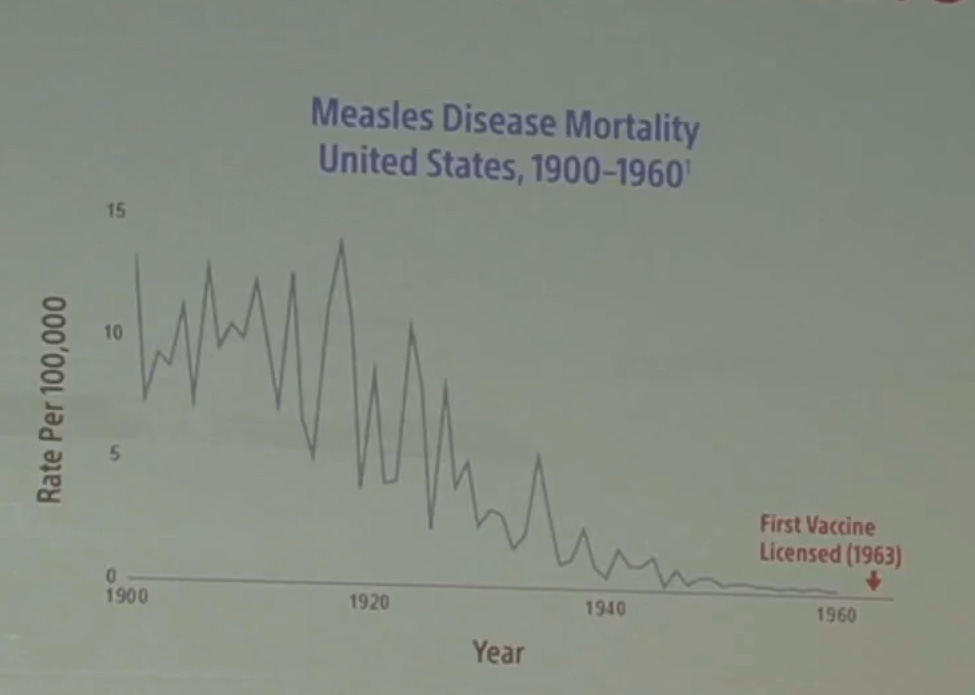
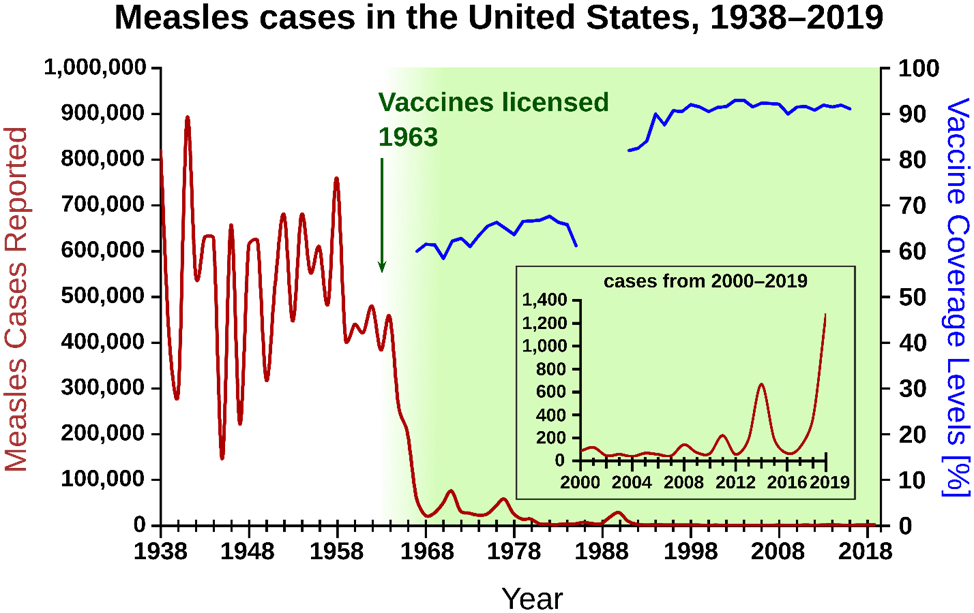
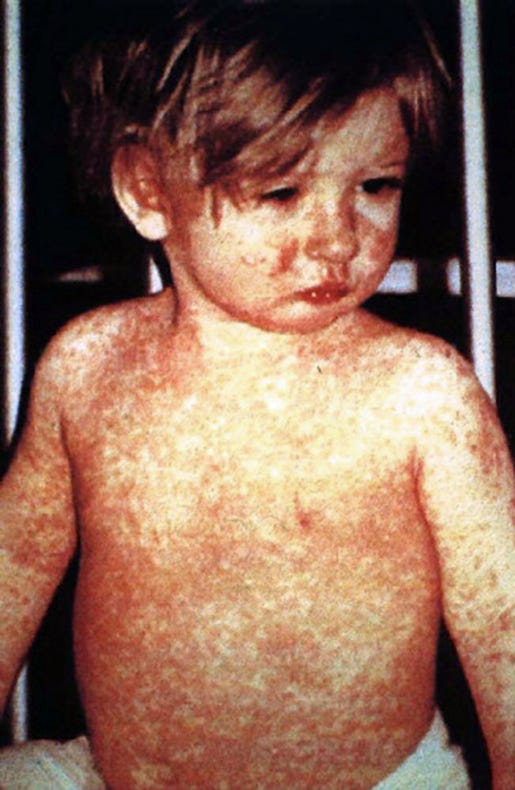


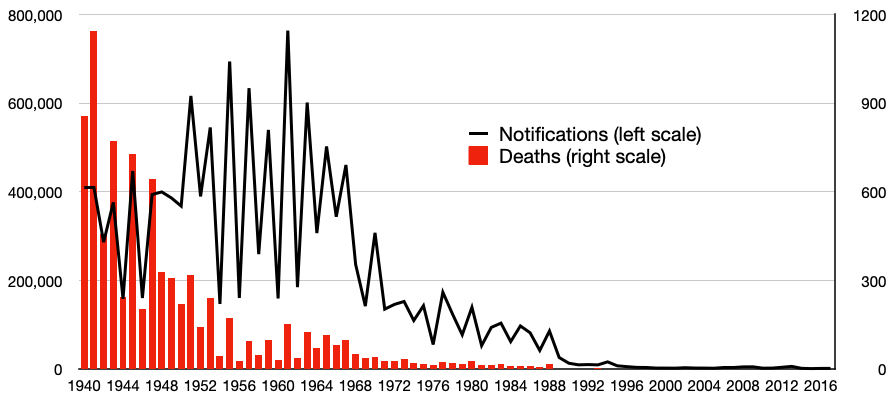
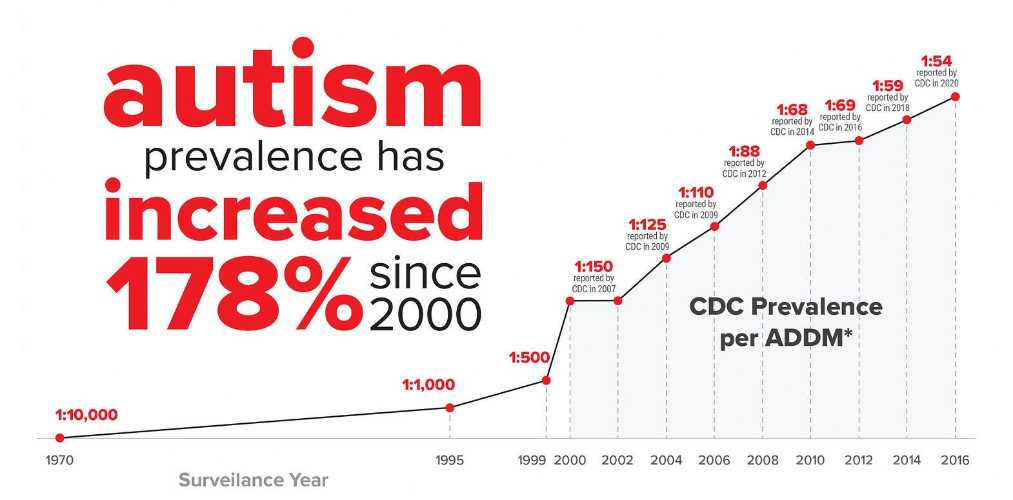
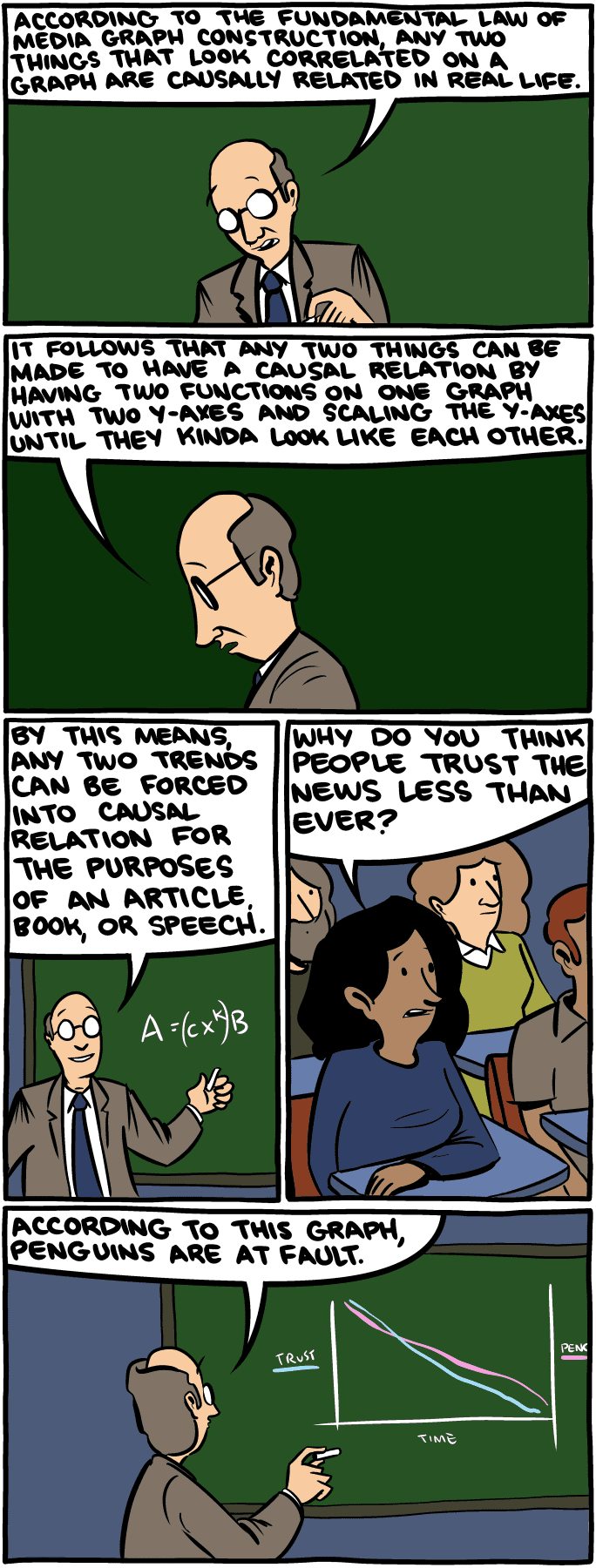
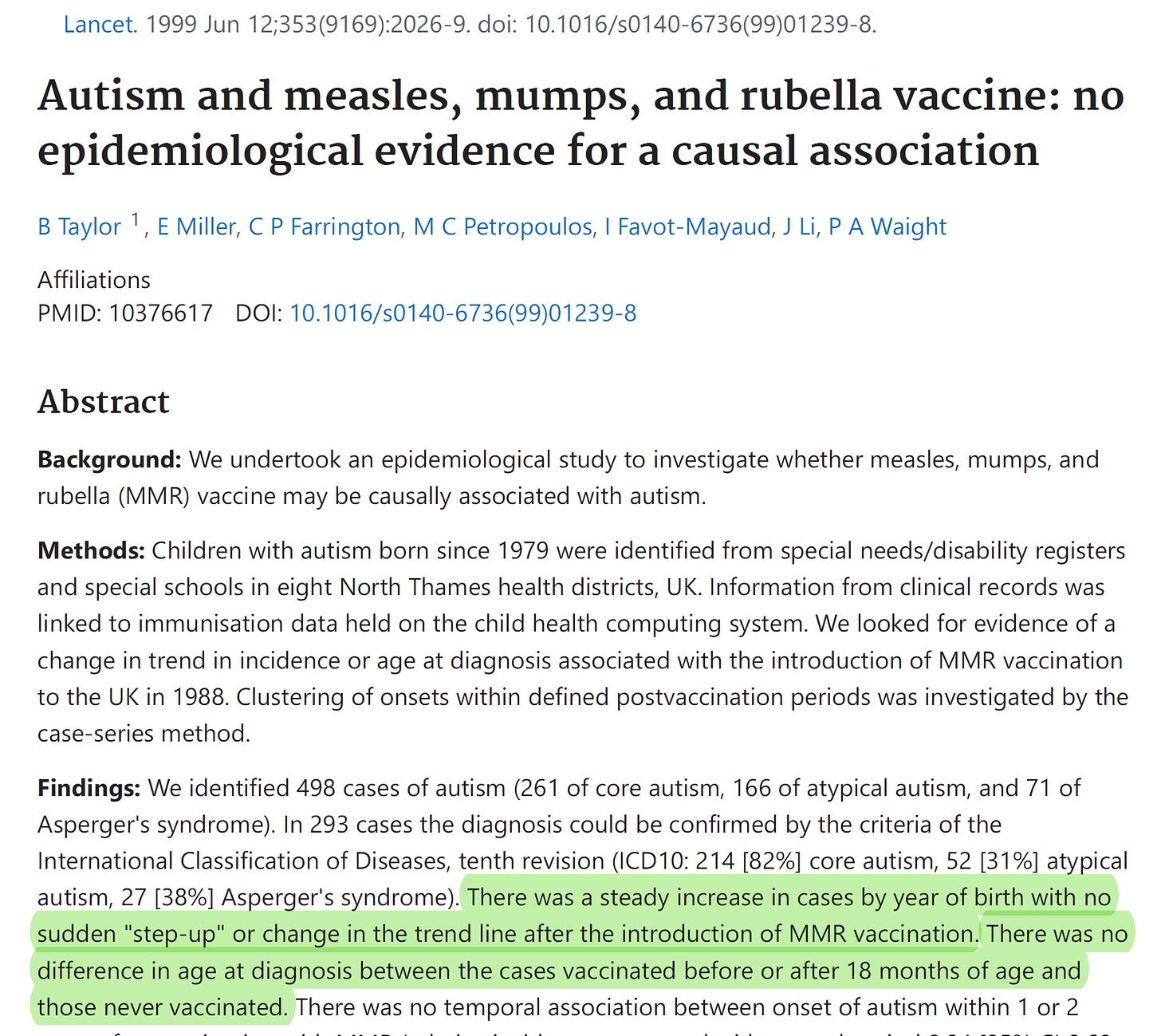
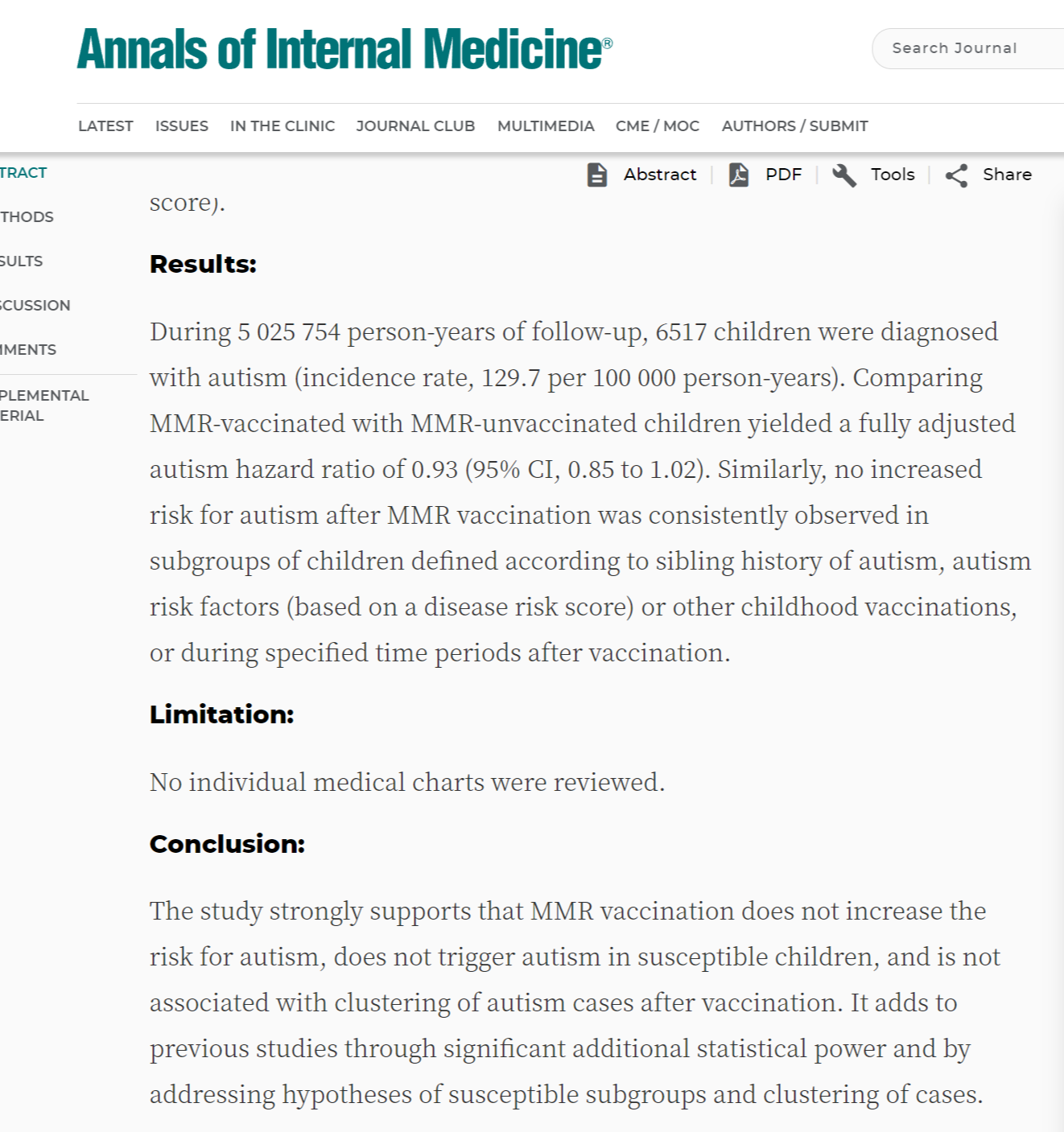
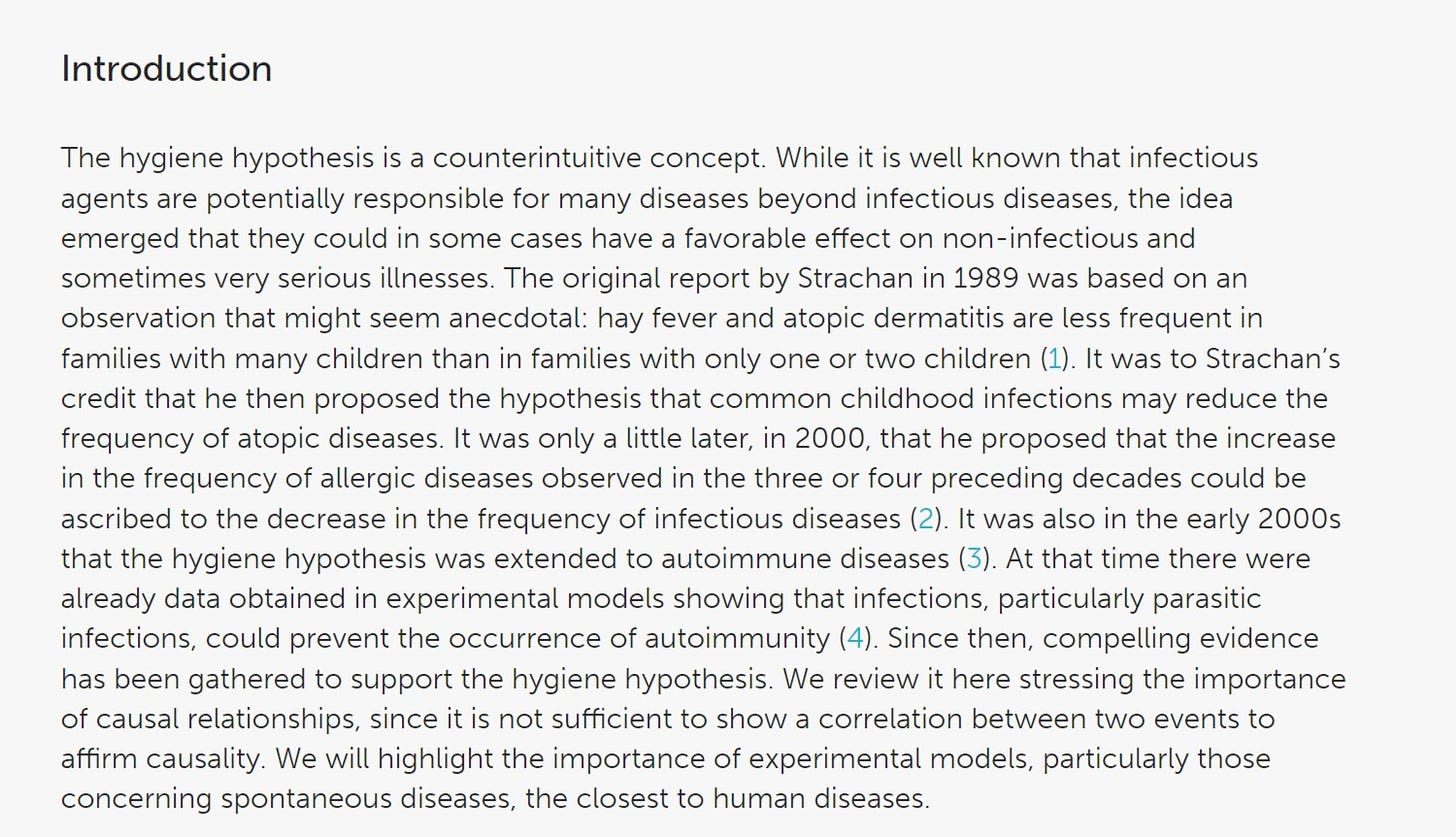

Some vaccines have been worth it (measles) while others have not.
The pediatrician really really wanted my children to get the rotavirus vaccine. I said no. That vax was recalled later due to causing bowel obstructions.
The pediatrician wanted the HPV vaccine for my kids. Again, I said no. It causes far too much damage.
The point is, I had to do my research on everything the doc wanted to inject into my kids. Thankfully I had the option to say no and to change the schedule of shots to what I thought was best for my children; not just follow the herd because we were a captured audience.
That said, because of the last 2 years, I question EVERY SINGLE VACCINE NOW. Every. Single. One.
I appreciate your intellectual honesty, and that is regardless of whether we even agree on the premise. Intellectual honesty is critical, and it's important that you are not scared to speak your mind regardless of whether your audience agrees or not!
I would like to ask you another question from the angle I have been thinking about it lately: We in the modern culture are completely conditioned to believe that getting sick is bad, period. But what if getting sick with various things as a kid and surviving those things is an important part of human development? For example, when I was growing up, I had measles (twice,, I believe, even though one is supposed to have it only once). It was considered normal to have it. And what if human body learns an abundance of things by overcoming a disease in a natural way, as opposed to just one trick when overcoming a vaccine-induced attack?
On my end, where I am at right now, I feel that the principle of intelligent training by "somewhat controlled expose to crap," be it physical or emotional, is a concept that has been useful to human beings for probably millions of years. However, I am not sure at this point in time if "vaccines" were ever done right. It may be very well possible to do them right but it doesn't look like they have ever been right, due to general arrogance, lack of an understanding of a bigger picture, and commercial interests.